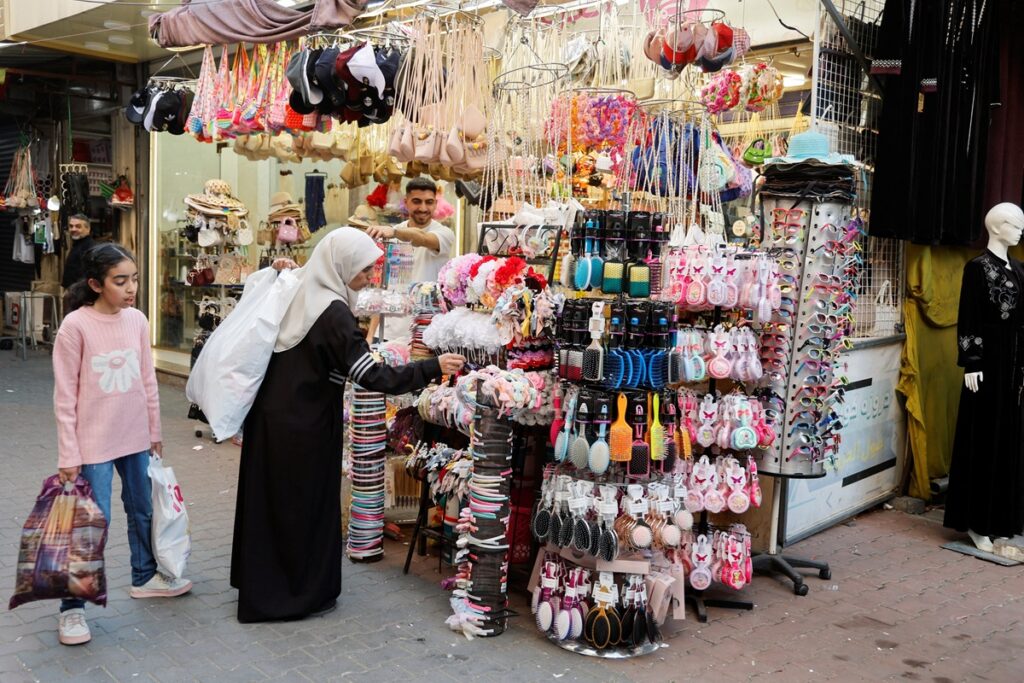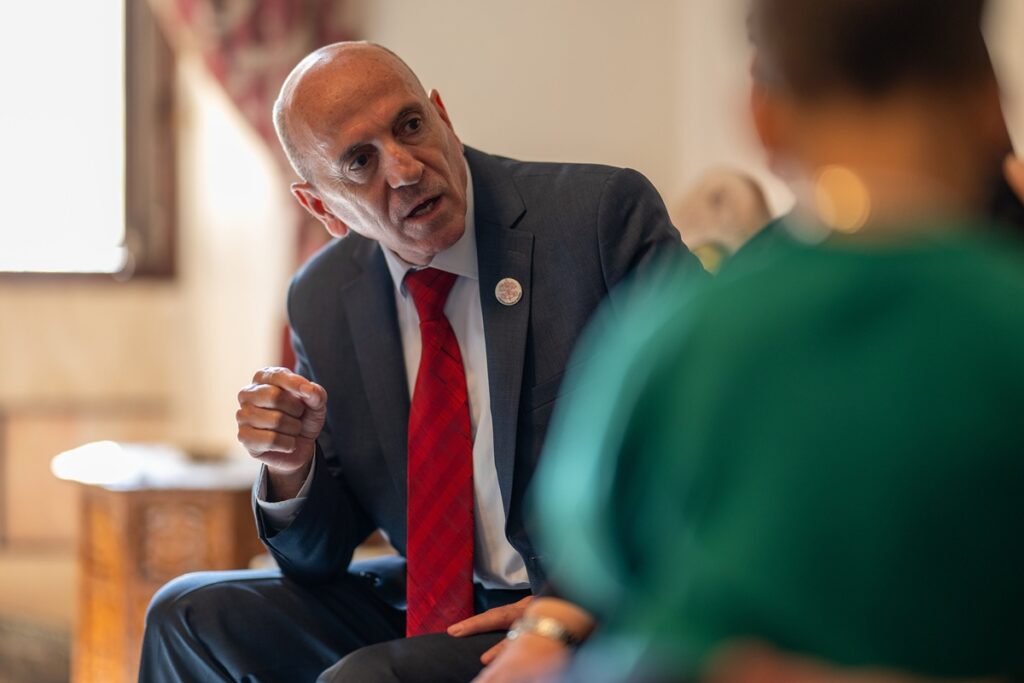(OSV News) — As the Israel-Hamas War nears the two-year mark, Catholic humanitarians are working to create jobs and livelihoods amid the shattered economy of the West Bank, the area between Israel and the River Jordan that is home to more than 3 million Palestinians and some 700,000 Jews.
“I used to work in the tourism sector,” explained Murad Sarhan of Beit Jala, located next to Bethlehem and home to one of the world’s oldest Christian communities. “Of course, the war affected us. The roads were closed; tourism stopped completely.”
Sarhan shared his experiences in a video released Aug. 21 by the Catholic Near East Welfare Association-Pontifical Mission. Founded in 1926 by Pope Pius XI, CNEWA — which serves the Church in the Middle East, India, North Africa and Eastern Europe — has seen its mission expanded by successive popes to include assistance to all vulnerable peoples throughout the Middle East.
That mission has become even more vital as the Israel-Hamas war — sparked by the latter’s Oct. 7, 2023 attack on Israel — continues.
To date, more than 62,000 Palestinians have been killed in the conflict, according to the Hamas-run Gaza health ministry. Some 1,200 Israelis have been slain and more than 5,400 injured. Of the 251 Israeli hostages taken by Hamas that Oct. 7, 50 remain in captivity, with only 20 of them believed to still be alive, with 83 of the hostages confirmed killed to date. More than 100 were released later in 2023; eight were rescued by Israeli forces.
Along with the humanitarian crisis in Gaza — where a famine has been formally declared by the Integrated Food Security Phase Classification, or IPC, a global food security metric used by a consortium of hunger relief agencies — the war has ravaged the economy of the West Bank.
Downturn in Tourism, Layoffs, Business Closures
Movement restrictions and a steep downturn in tourism have led to layoffs and business closures — especially in Bethlehem, which as the birthplace of Jesus Christ depends on tourist and pilgrim revenue, along with trade, said CNEWA-Pontifical Mission.
In addition, said the agency, the threat of settler violence — a term referring to alleged attacks by Israeli settlers on Palestinians living in the West Bank — has prevented Palestinians from accessing their workplaces.
According to an April report by the World Bank, the West Bank’s economy is now facing a “deep recession,” having “experienced a 17 percent contraction due to intensified movement restrictions, loss of access to the Israeli labor market, and heightened fiscal instability.”

Unemployment in the West Bank “doubled to 29 percent by the end of 2024,” said the World Bank.
In June, Joseph Hazboun, regional director of the CNEWA-Pontifical Mission in Jerusalem, noted that the unemployment level in Bethlehem had reached 31%, with the city losing an estimated $2.5 million per day in tourism revenue.
Speaking in CNEWA’s Aug. 21 video, Shireen Awwad Hilal, director of community outreach at Bethlehem Bible College, noted that “unemployment now in Bethlehem, according to the ministry of tourism, is over 47 percent, meaning in every home there is one or two unemployed.”
Bethlehem Emergency Project
In response to the situation, in August CNEWA-Pontifical Mission launched the Bethlehem Emergency Project, which assembled approximately $278,000 in funds from Kinderhilfe Bethlehem, a Swiss nonprofit that runs the West Bank’s only pediatric hospital, the Caritas Baby Hospital; the UK-based Christian development charity Embrace the Middle East; Vastenactie, a Netherlands-based Catholic charity; the Catholic Diocese of Stockholm; and the Swiss Holy Land Foundation.
With the funds readied, CNEWA-Pontifical Mission then teamed up with the towns of Beit Jala and Beit Sahour to offer 60 temporary jobs. Work included digital communications projects for the municipalities, cultural heritage restoration projects and waste removal.
Hilal said CNEWA-Pontifical Mission had aided her school by granting “33 positions for people to be allocated in different areas, in different ministries in the area of Bethlehem,” adding, “The project was a great success.”
Along with employment, grant funds helped more than 70 people with medical assistance, with longtime CNEWA partner the Arab Orthodox Benevolent society vetting applicants.
In addition, some 110 Christian students received financial aid that cleared overdue tuition at Bethlehem University and Dar al-Kalima University, with another 65 Christian students at other schools having their fees covered.

Hazboun said in the video that “there is a need to renew this program, especially since some of the employees we hired left a good impression on their employers and were given permanent jobs, which is considered a success in these challenging circumstances.”
He continued, “We hope that the young men and women working through this initiative will find hope that they are not alone, that they are not abandoned, and that there are institutions trying to support them.”
“God willing, we will be able to instill hope and give families the chance to remain resilient in the face of tragic circumstances we are living through, circumstances our country has not witnessed in decades,” said Hazboun, who thanked donors and encouraged them to sustain their support “so that we can offer more families income so that they can put some bread on the table with dignity and remain steadfast in their homeland.”
Gina Christian is a multimedia reporter for OSV News. Follow her on X @GinaJesseReina




